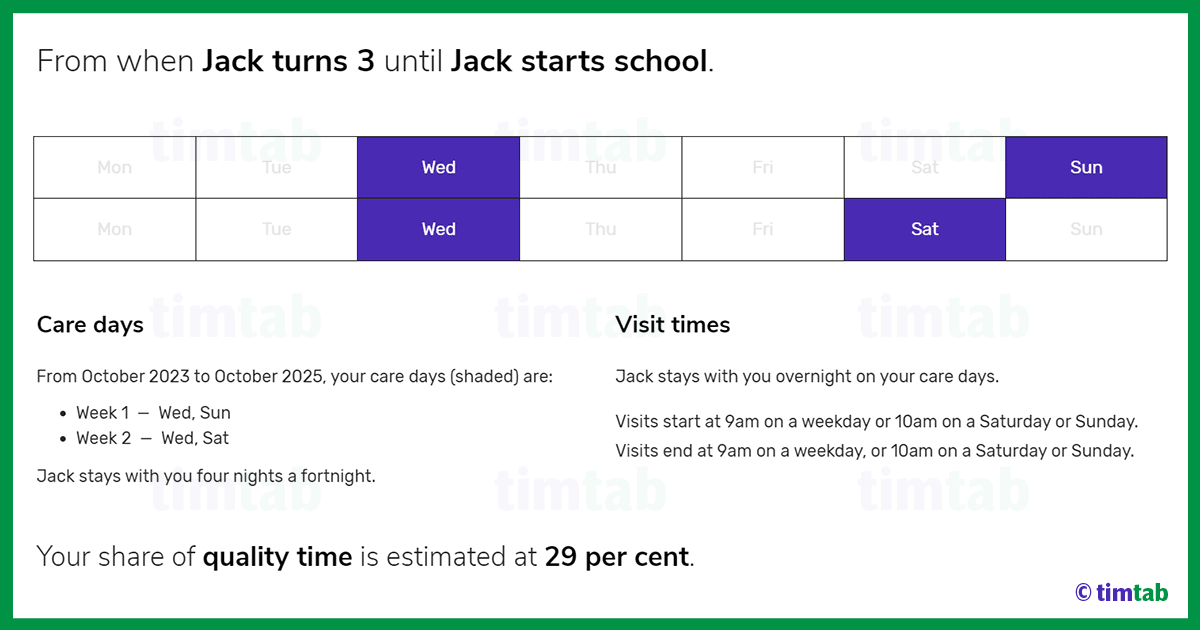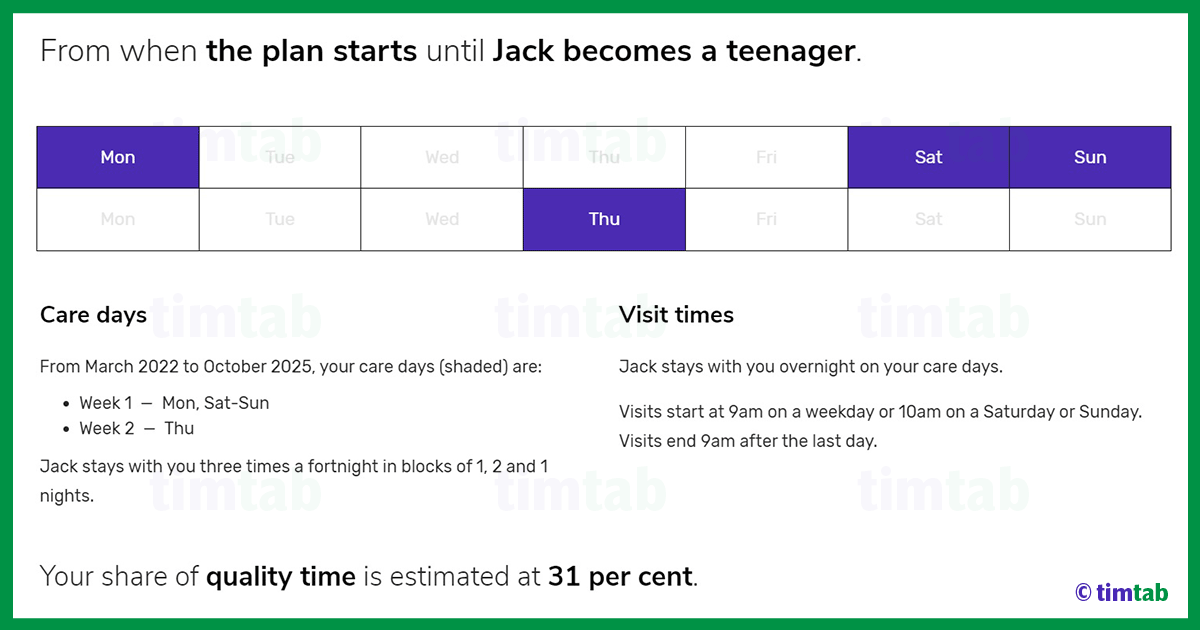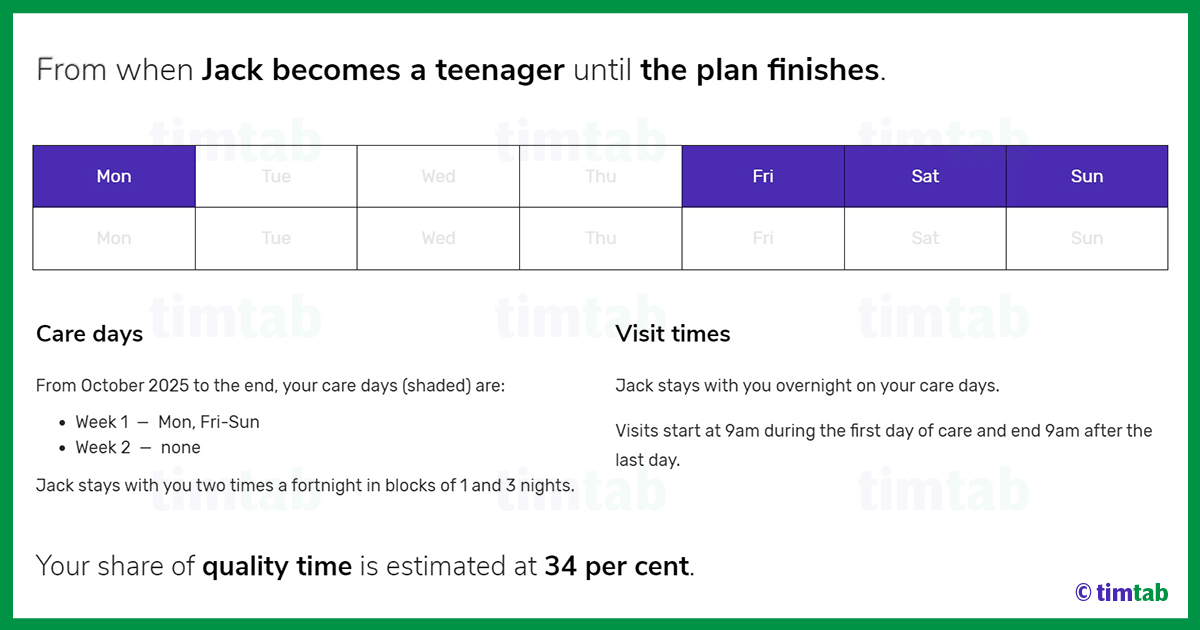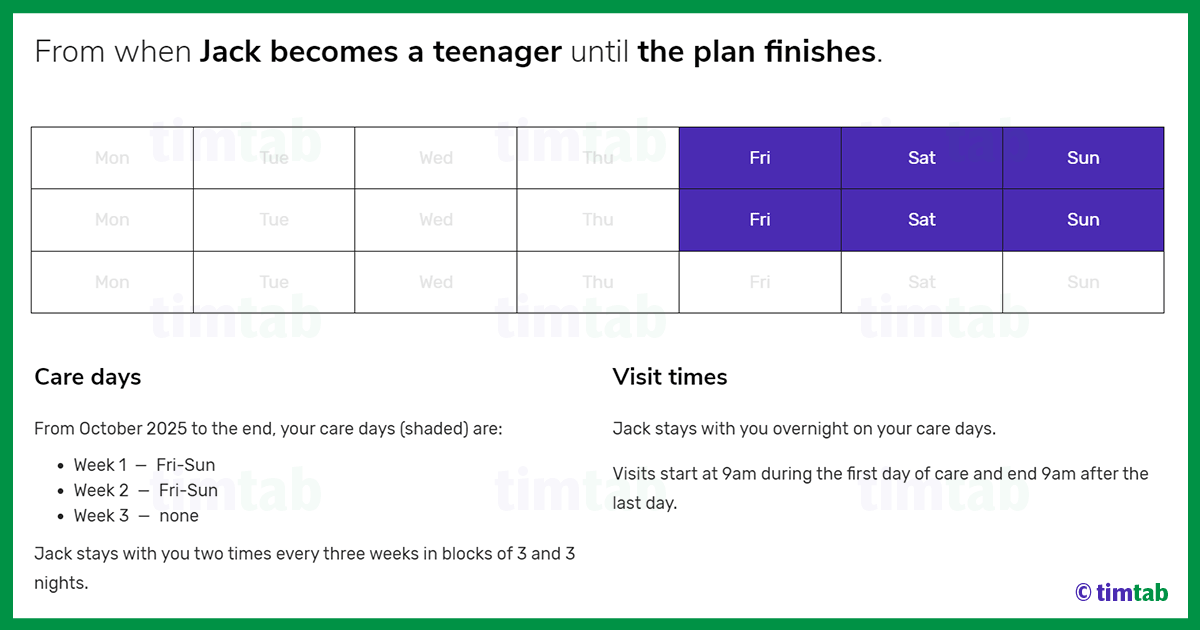70/30 Child Custody Schedules... 2 out of 7 nights visitation
A 70/30 custody split means the non-custodial parent has the child or children 2 out of 7 nights on average. Here are the four best 70/30 parenting schedules, including plans for toddlers and when parents live far apart.

Tim Tab
AI Software
March 10, 2020
Share article:
The following examples of 70/30 custody schedules are the top-rated plans according to Timtab AI software. Timtab finds the best schedules based on factors such as child age and travel times. The top 4 are the schedules recommended most often for a 70 30 percentage split.
What Does 70/30 Custody Mean?
A 70/30 custody schedule means that a child spends 70% of their time in the care of one parent and 30% with the other. That corresponds with an average 2 nights out of 7 visiting one parent.
Two out of seven is actually 29%. But the final percentage is often 30+ because of longer vacation visits.
70/30 parenting schedules are normally used when one parent has primary custody or the arrangement is sole physical custody with scheduled visitation. The arrangement is a bit too imbalanced to be considered a form of shared parenting since one parent has below the required 35% custody share.
But the care split is relatively even for a situation where, instead of joint physical custody, a child may be considered to have a custodial parent and a non-custodial parent. The child lives with one parent but spends significant time visiting the other.
70/30 Custody Schedule for a Toddler

For a toddler or other pre-school child, the ideal schedule has frequent visits. The top-rated 70/30 custody schedules include a mid-week visit every week plus a weekend visit every weekend.
The highest-rated parenting schedule has a Wednesday overnight visit plus an overnight stay on the weekend, alternating between Saturday and Sunday.
- The schedule provides contact consistency plus a little variety on the weekends.
- The child is never away from the custodial parent for more than 1 night and from the non-custodial parent for more than 3 days.
See also: Best Custody Arrangements for Toddlers
Important message!
Other schedules may be better depending on your situation. Timtab produces different parenting plans if, say, travel times are long, visits are not overnight or the plan is for multiple children.
Join Timtab to find the best schedules by age for your child or children.
70/30 Schedule for a Child Aged 5 to 12

For a child who has started school, the best parenting schedule has fewer changeovers compared to a toddler.
The highest rated schedule has alternating weekends with each parent. As well, the child visits the non-custodial parent on a Thursday and Monday.
- Apart from one Saturday morning, all changeovers happen via school drop offs and pick ups. Travel may be only slightly more than for the average family.
- The child is never away from the custodial parent for more than 2 nights and from the non-custodial parent for more than 4 days.
70/30 Schedule for a Teenager

For an older child, the schedule can be simplified and have longer gaps between seeing each parent.
The top rated schedule has alternating extended weekends, from Friday through to Monday morning. The teen also visits the non-custodial parent on alternate Mondays.
- All changeovers happen via school drop offs and pick ups. If both parents live quite close to the school, travel is about the same as for an intact family .
- The teenager is never away from the custodial parent for more than 3 nights and from the non-custodial parent for more than a week.
Best Schedule for Long-Distance Travel

If the non-custodial parent lives far away, the best 70/30 schedules are all about the weekends. Travel during the week is too difficult, especially when children have to be at school each day.
Weekend-only schedules are useful if one-way travel times are measured in hours instead of minutes.
The top-rated custody example follows a tri-weekly timetable. The child has an extended weekend with the non-custodial parent 2 out of 3 weeks. Typically, each weekend with the non-custodial parent starts as soon as school finishes on Friday and ends with the start of school on Monday morning.
- To reduce the travel burden, an older child could use public transport.
- The parents might also drive to a changeover location halfway between school and the non-custodial parent's home.
- Another option is for the non-custodial parent to organize weekend accomodation near where the child lives.
